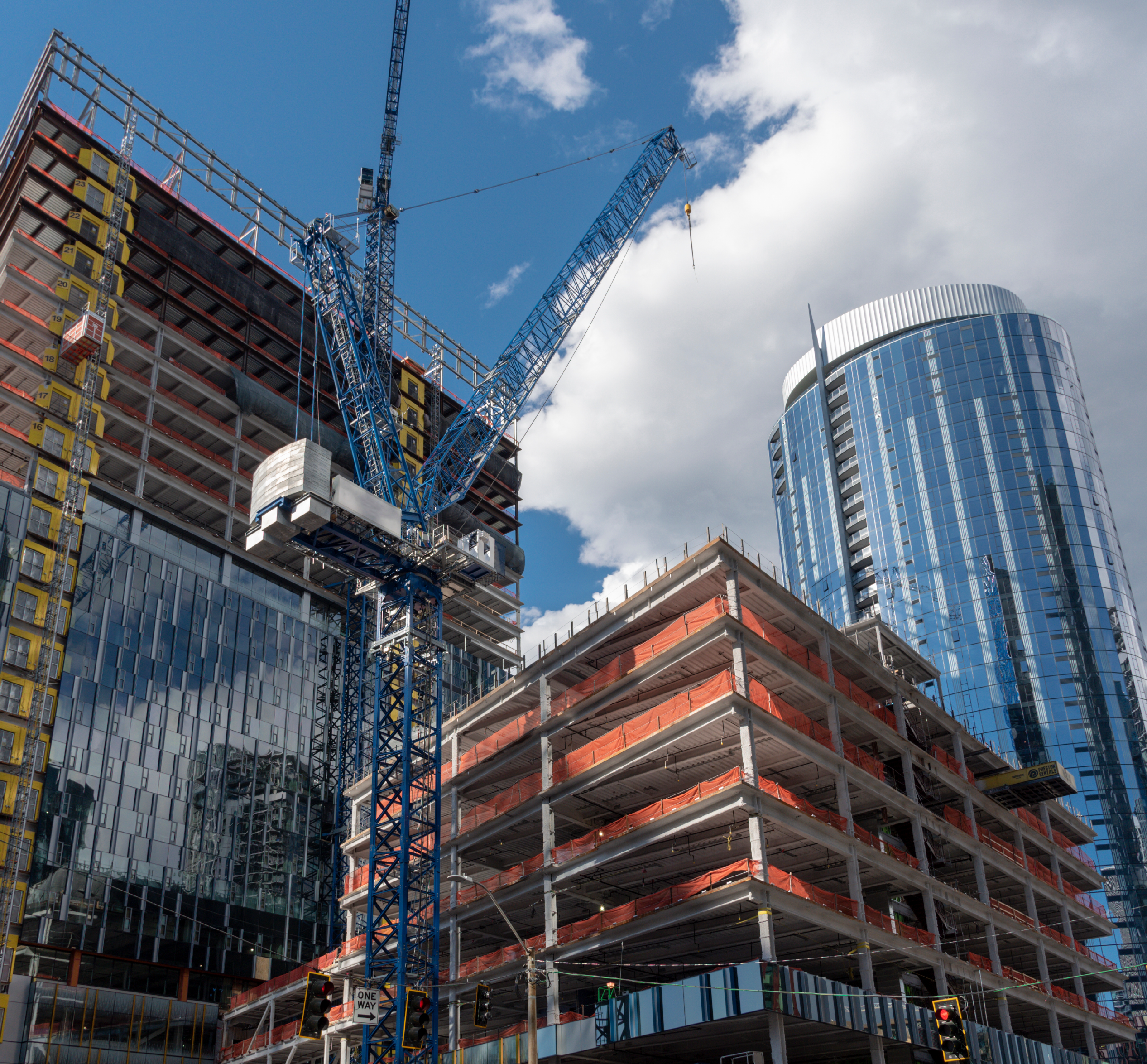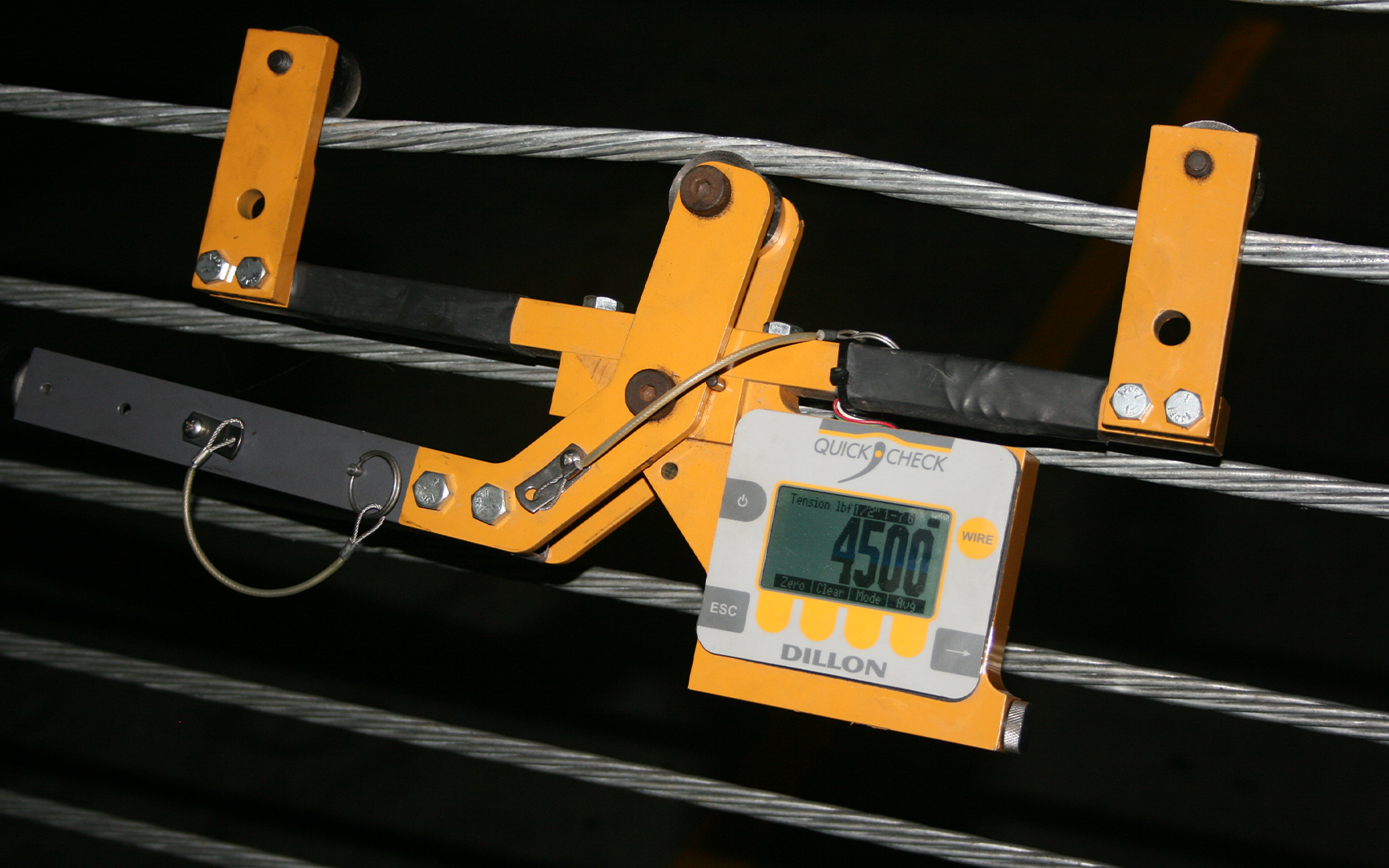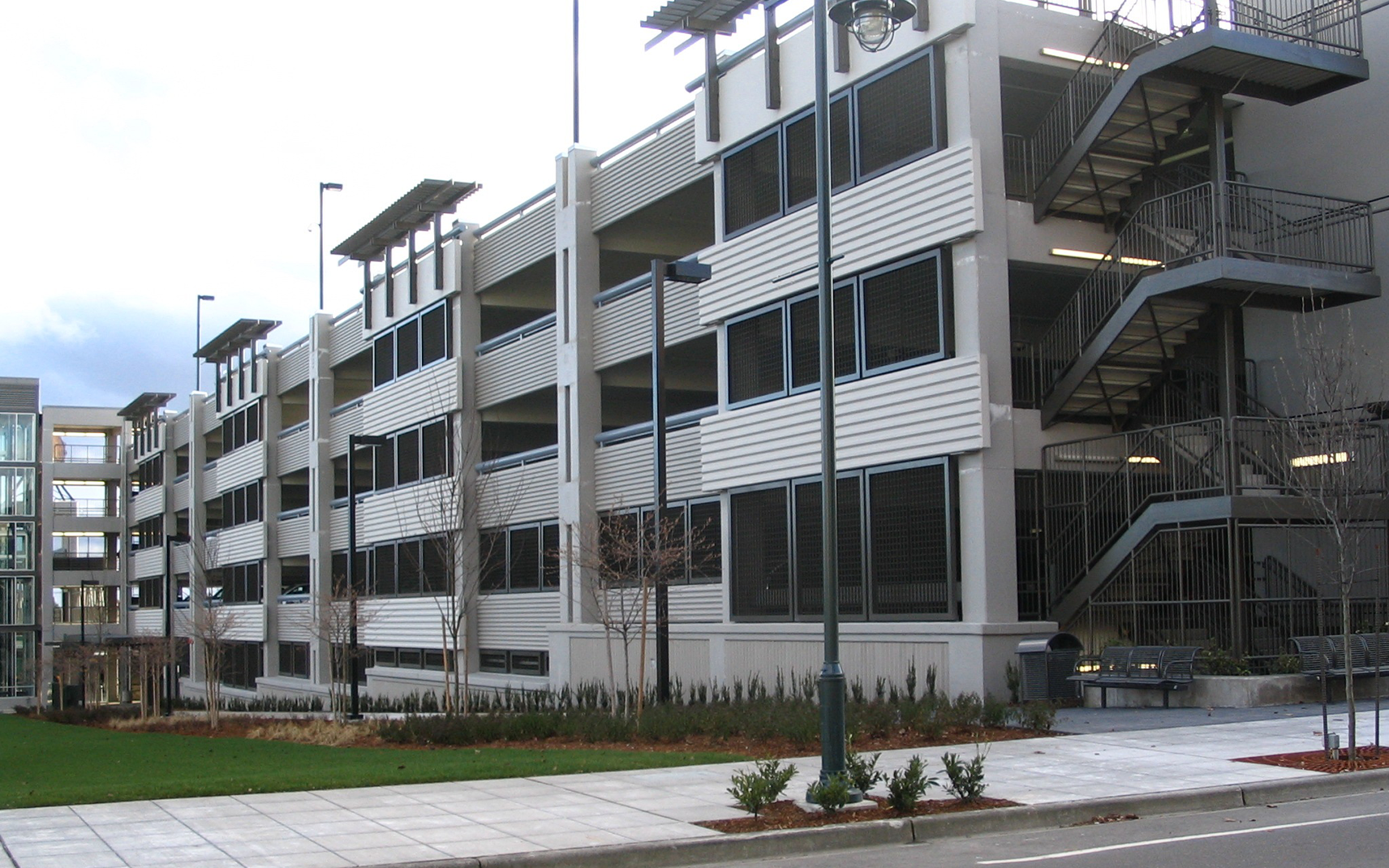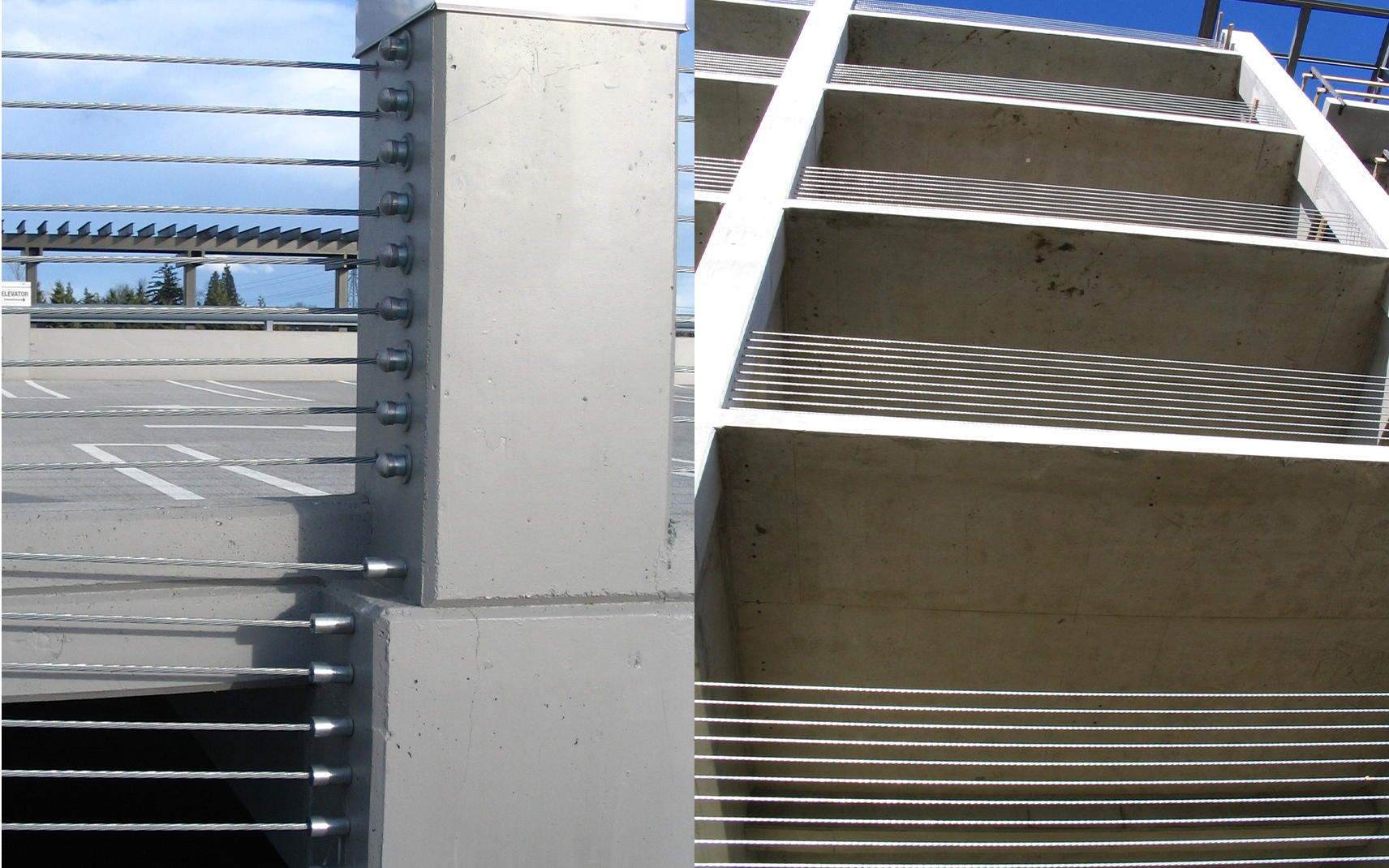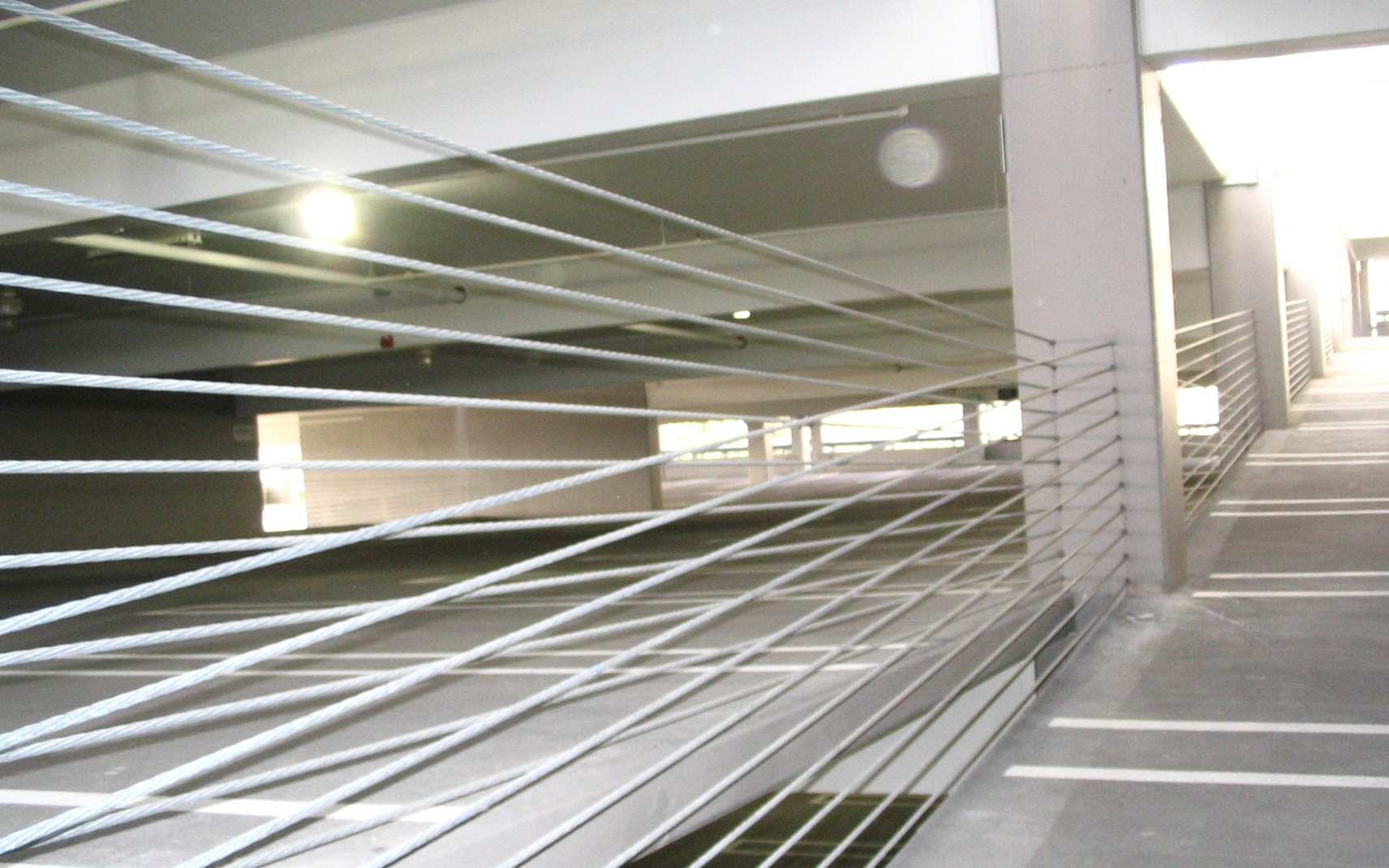
Service Details
We provide full-service barrier cable solutions — including new system installations, custom designs, emergency repairs, re-tensioning, and certified load testing — all tailored to protect vehicles and pedestrians in parking structures.
Service Benefits
- Risk Reduction:
Lowers incidents and liability exposure. - Cost Control:
Extends service life and minimizes emergency repairs. - Compliance:
Keeps projects consistently up to code. - Reputation:
Demonstrates a commitment to safety and quality.
Experience and Qualifications
We bring over 100 years of combined post-tensioning experience, PTI-Certified technicians, custom solutions, and full compliance with IBC and PTI standards. Our team is uniquely qualified to handle every aspect of barrier cable systems — from design to final certification. We have successfully completed barrier cable projects across a wide range of property types — including multi-level parking garages, mixed-use developments, airports, hospitals, and commercial facilities — ensuring every system meets or exceeds IBC, PTI, and ASTM standards. From new installations to emergency repairs and certified load testing, we keep your structures safe, compliant, and ready for the future.
What Can We Support With?
Barrier Cable Installation
Barrier Cable Repair
Barrier Cable Load Testing
Compliance upgrades
Emergency impact repairs
New system design
Barrier Cable FAQs
Barrier cable systems for parking structures protect vehicles and pedestrians by preventing falls and accidents. They offer strong impact resistance, lower costs, and improved ventilation compared to traditional concrete barriers.
Yes. Damaged or corroded vehicle barrier cables can often be repaired or partially replaced without the need for full system removal, helping you maintain parking structure safety while saving costs.
Yes. Our systems meet IBC and Post-Tensioning Institute (PTI) standards for both vehicle barriers and pedestrian protection.
Most barrier cables are galvanized or epoxy-coated to prevent corrosion and extend their lifespan, especially in outdoor or coastal environments.
Yes. We design custom barrier cable layouts and anchorage systems tailored to your parking structure’s architecture, safety requirements, and aesthetic goals.
Visible sagging cables, broken anchorages, corrosion, or cables that feel loose or displaced are common signs that repairs are needed. Load testing and visual inspections can confirm if cables meet safety standards.
Barrier cables are faster to install, more affordable, offer better ventilation and visibility, and deliver comparable impact protection with easier long-term maintenance.
Parking garage barrier cables should be inspected visually at least once per year. Load testing and re-tensioning should be done after major impacts or every few years to maintain performance.



